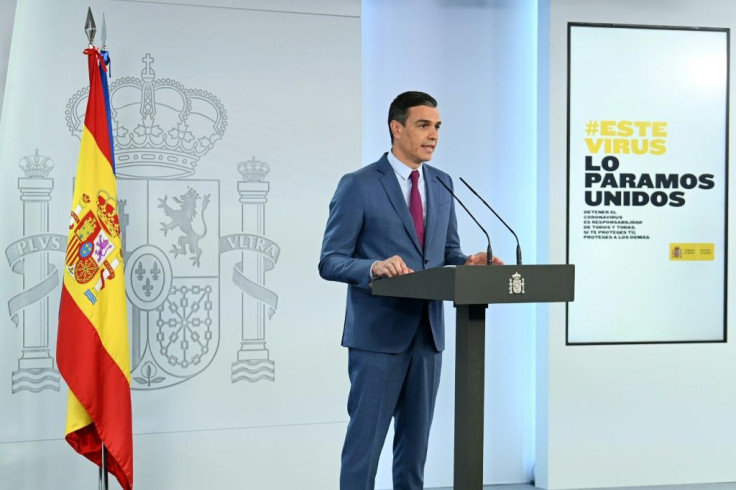Spanish PM Unveils Younger Cabinet Dominated By Women
Spain's premier, whose Socialist party has been lagging in opinion polls, on Saturday reshuffled his government, unveiling a younger cabinet dominated by women that he vowed would preside over a post-Covid economic revival.
"The revival government begins today,' Pedro Sanchez said as he presented the reshuffle, the first since his left-wing minority coalition came to power in January 2020.
His coalition, made up of Socialists and the radical-left Podemos party, trails the conservatives in opinion polls.
Unveiling the new cabinet, Sanchez said it represented "a generational renewal" because the mean age of the ministers was now 50 instead of 55.
Women now make up 63 percent over 54 percent in the previous government.
"This will make our country once again the reference for women-men equality," Sanchez said.
"Once the worst of the pandemic has been overcome" the cabinet will work toward "an economic renewal and creation of jobs," in part using the Covid-19 recovery funds that Spain will get from the European Union.
Calling the funds "an enormous opportunity," Sanchez said that Spain's economic recovery "must be digital... must be green... and must also be feminist."
Podemos kept their five portfolios in the 22-member cabinet.
Foreign Affairs Minister Arancha Gonzalez Laya was replaced by Jose Manuel Albares, who was Spain's ambassador to France. Socialist Carmen Calvo, who was number two in the government, has also left the cabinet, replaced by Nadia Calvino, economy minister.
The Spanish government had been weakened over the past several months.

Early in May, Podemos and the Socialists were routed in regional elections in Madrid by the conservative Popular Party (PP).
The PP has surged ahead of the Socialists in opinion polls following that election -- at the end of May, polls showed the PP and the far-right Vox together would win an absolute majority in parliament if a general election were held.
Its leader Pablo Casado denounced the reshuffle on Saturday, tweeting: "Spain's problem is Sanchez, he is the one who should leave."
The government's decision in June to pardon nine Catalan separatists has also drained support.
The pardons have been condemned by Spain's right-wing opposition as well as by the Supreme Court, but Madrid hoped they would give impetus to talks with Catalonia's new leader, Pere Aragones, who was more open to dialogue than his hardline predecessor.
Since Sanchez's coalition came to power, it has relied in part on the support of ERC, a leftist Catalan separatist party, which in return demanded talks on resolving the separatist conflict in wealthy Catalonia.
A week after the pardons, Aragones said separatists would resume talks with the government in the second half of September.
An Ipsos poll in June found that 53 percent of Spaniards opposed the pardons, but 68 percent of Catalans were in favour.
Socialists and the conservative PP have alternated at the helm of Spain, EU's fourth largest economy, since the 1980s.
The country has been roiled by political crises since the conservative PP government of Mariano Rajoy fell in 2018.
© Copyright AFP 2024. All rights reserved.





















